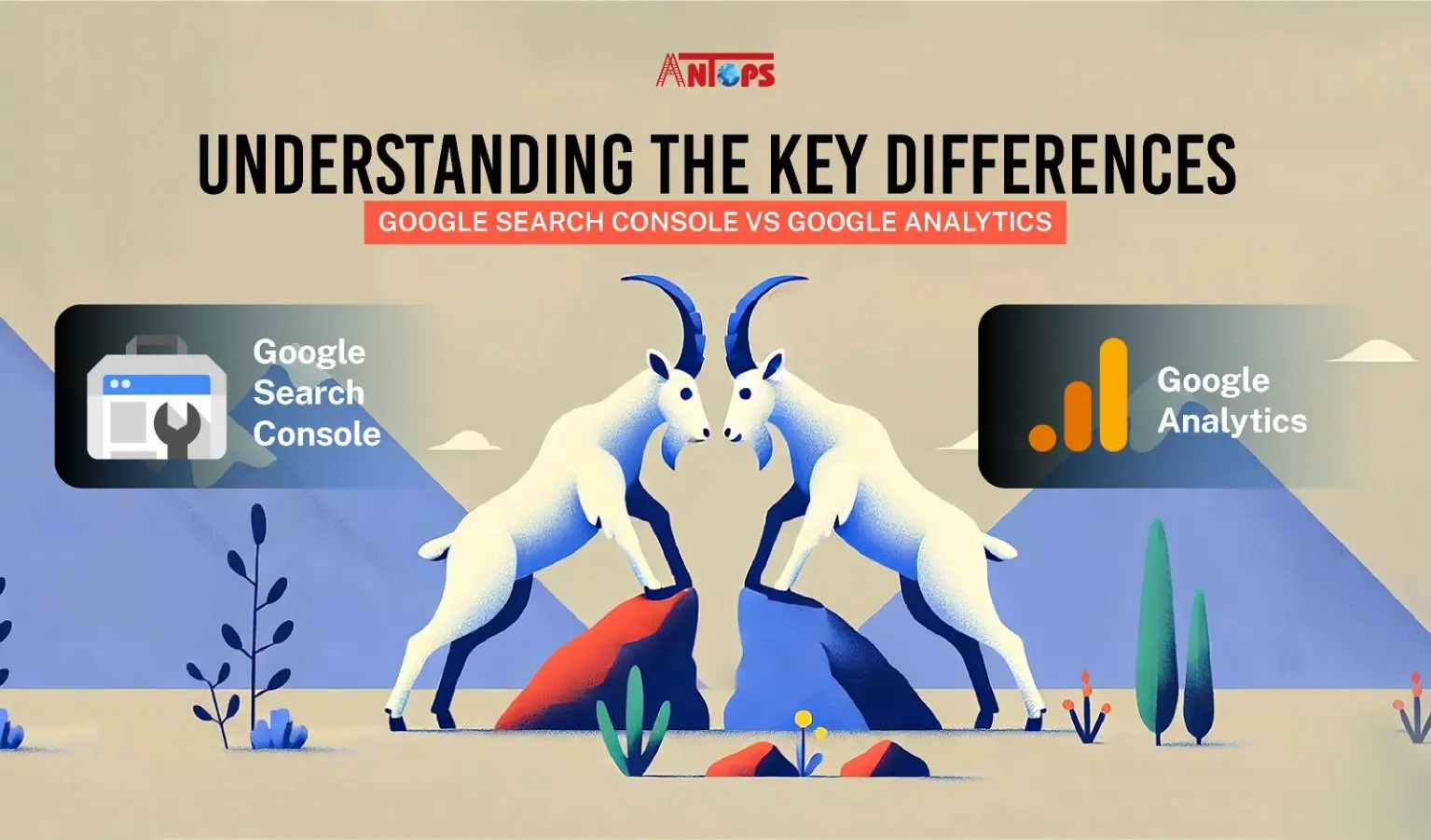
In the realm of digital marketing and website management, Google Search Console and Google Analytics are two indispensable tools that serve distinct purposes. While both provide valuable insights into website performance, understanding their key differences can help you leverage them effectively. Here’s a comprehensive comparison to help you understand what each tool offers.
Purpose and Focus
Google Search Console (GSC)
- Primary Focus: Search performance and technical SEO.
- Main Use: Monitoring and maintaining your site’s presence in Google Search results.
- Audience: Primarily used by webmasters, SEO specialists, and developers.
Google Analytics (GA)
- Primary Focus: User behavior and site interaction.
- Main Use: Analyzing website traffic, user engagement, and conversion tracking.
- Audience: Used by marketers, data analysts, and business owners.
Data Collection and Reporting
Google Search Console
- Data Type: Search-related data, such as search queries, clicks, impressions, and ranking positions.
- Data Source: Google’s search engine.
- Reporting: Offers reports on search performance, coverage, enhancements (like AMP, mobile usability), and security issues.
Google Analytics
- Data Type: User behavior data, including sessions, pageviews, bounce rates, and conversion tracking.
- Data Source: Website interactions tracked via GA code snippet.
- Reporting: Provides detailed reports on audience demographics, acquisition channels, behavior flow, and conversion goals.
Key Features
Google Search Console
- Search Performance: Insights into how your site appears in Google Search, including queries, clicks, impressions, CTR, and average position.
- Index Coverage: Information on which pages are indexed and any issues preventing indexing.
- Sitemap Submission: Allows submission and monitoring of sitemaps to ensure proper indexing.
- Manual Actions: Alerts on any manual penalties applied to your site and guidance on fixing them.
- URL Inspection: Check the status and details of specific URLs.
Google Analytics
- Real-Time Data: Real-time insights into current site activity.
- Audience Insights: Detailed demographic, geographic, and behavioral data of your site’s visitors.
- Acquisition Channels: Breakdown of traffic sources such as organic, direct, referral, and social.
- Behavior Flow: Visual representation of user navigation paths through your site.
- Conversion Tracking: Measure goals, e-commerce transactions, and other key performance indicators.
Integration and Use Cases
Google Search Console
- Integration: Can be integrated with Google Analytics for enhanced search data within GA.
- Use Cases: Optimizing site for search, fixing indexing issues, improving technical SEO, and monitoring site health in search results.
Google Analytics
- Integration: Can be integrated with various tools like Google Ads, Google Tag Manager, and CRM systems.
- Use Cases: Understanding user behavior, improving user experience, tracking marketing campaign performance, and driving data-driven decisions.
User Interface and Ease of Use
Google Search Console
- User Interface: Simple and straightforward, focusing on search-related data and issues.
- Ease of Use: User-friendly for those familiar with SEO concepts but may require some learning for new users.
Google Analytics
- User Interface: More complex with a vast array of reports and customization options.
- Ease of Use: Steeper learning curve, but highly powerful for those who invest time in mastering it.
Conclusion
Both Google Search Console and Google Analytics are essential for managing and optimizing your website. Google Search Console is your go-to for understanding and improving how your site appears in Google Search, while Google Analytics provides a deep dive into user behavior and overall site performance. By leveraging both tools together, you can gain a holistic view of your website’s health and performance, ultimately driving better results for your online presence.


